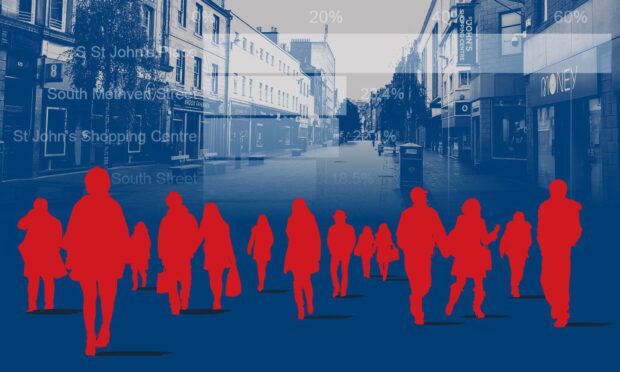
On paper it sounds like a dream job: earn cash from your living room. Be your own boss. Travel the world. Maybe you could even buy a brand new Mercedes after hitting your targets.
But some women around the north-east, Tayside and Fife are losing money each year after signing up for these so-called “business opportunities,” and the Covid-19 pandemic isn’t helping.
They are among the half a million people in the UK who have joined the multi-level marketing boom. But unlike a traditional job, there’s no CV required. No qualifications needed and no interview. Instead, you often pay to join.
Welcome to the world of multi-level marketing, also known as network marketing, or MLM for short.
These direct-sales businesses sell products via individual distributors, rather than in traditional shops and many of those would-be distributors are ordinary women looking to make a living. Each one makes money by earning commission on the items they sell, whether it’s make-up, coffee, weight-loss shakes or whitening toothpaste.
It’s an attractive prospect, especially in a world of pandemics, furlough and redundancy.
While there are many staunch supporters across the UK who say that multi-level marketing has worked for them, there is a growing number of sceptics calling for tighter regulations around the way the industry works, saying the vast majority who take part don’t make money and end up out of pocket.
MLM firms maintain they do not condone any outlandish or misleading claims made by their representatives and encourage anyone to report such behaviour to them.
For this investigation, we spoke to women across the north-east about their experiences of multi-level marketing. Many told us stories about how they lost hundreds of pounds after signing up but others say they did find success, particularly during the pandemic.
Here, you can listen to their stories. Some are spoken by actors as they didn’t want to be identified following their experiences as part of MLMs.
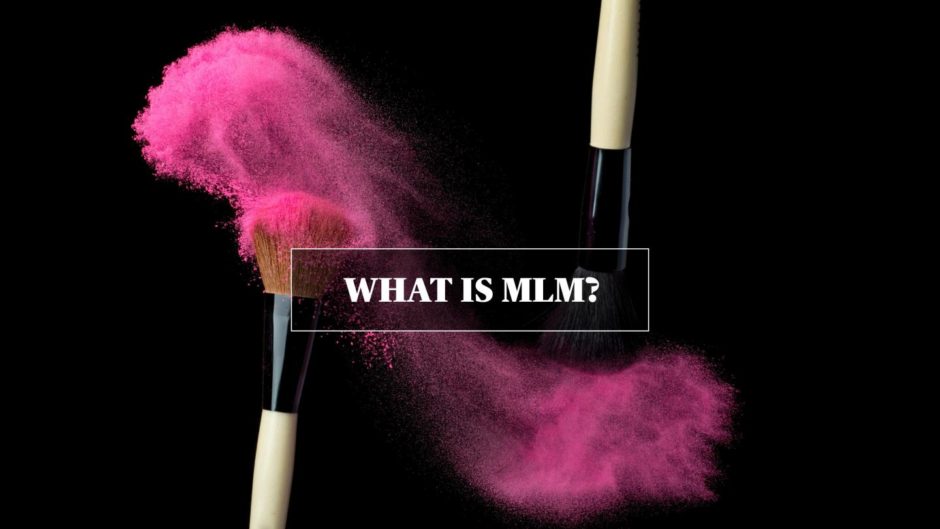
Multi-level marketing businesses use individual distributors to sell products instead of traditional shops.
These distributors buy the products to sell on and earn a cut of the profits as they go.
But selling is just one half of the story.
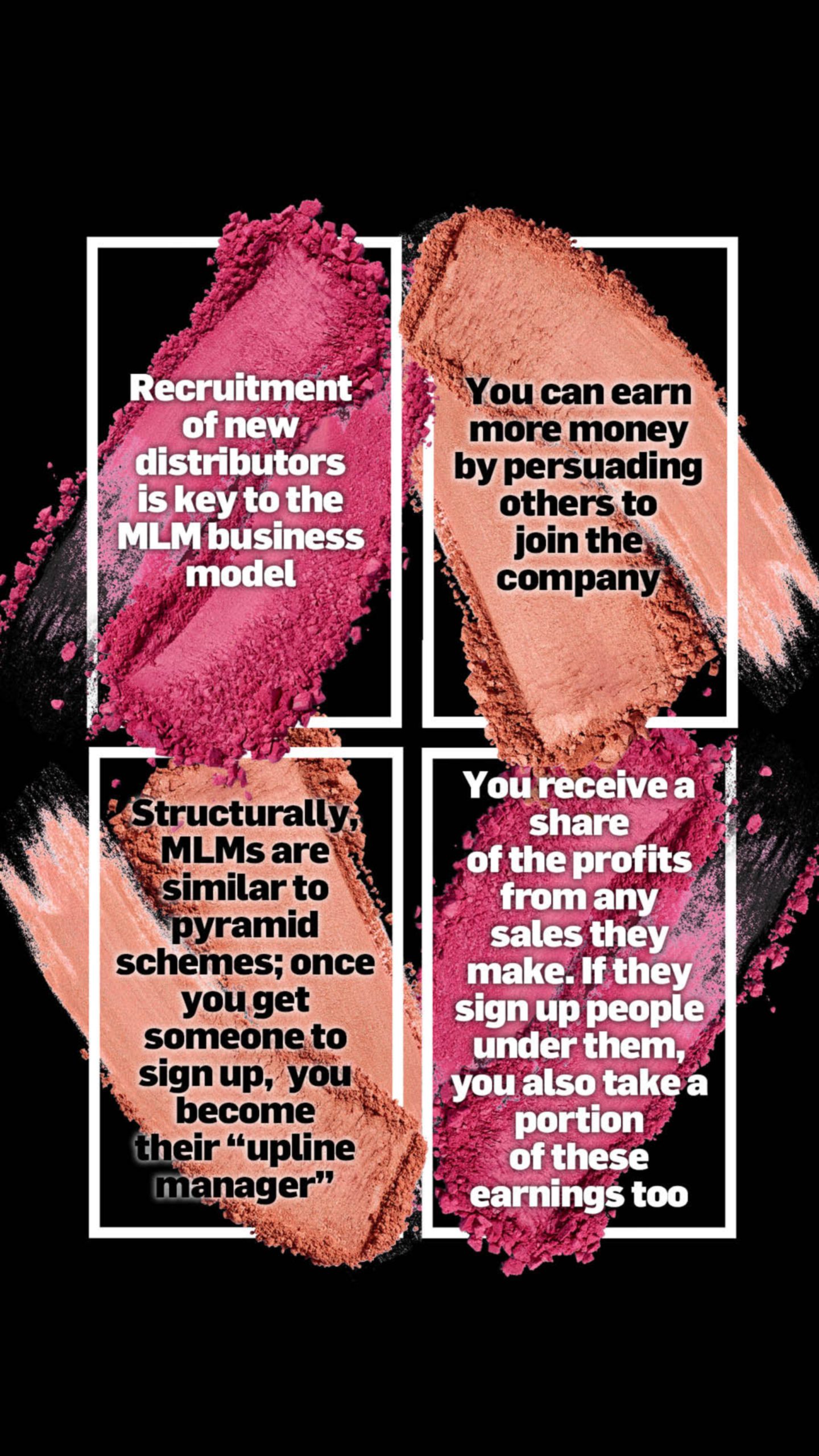
The industry is now worth more than £2.6 billion and has seen a dramatic rise in the number of people willing to sell products.
Avon, regarded as the original commission-based business model, has seen the number of new sellers double during lockdown while The Body Shop at Home and Younique said they’ve seen newfound interest from recruits in need of extra money during these difficult times.

Facebook posts looking to recruit sellers have also exploded to the point some page administrators have become so overwhelmed they have banned them.
An administrator of online marketplace FaceBay Dundee said she had seen a “huge increase” in posts offering MLM products and recruitment opportunities since the first lockdown began.
“I have to vet each post now before it goes online as the page was just flooded with MLM selling and recruitment messages,” she said.
“I’ve changed the group rules to say ‘no MLM posts are allowed’ but I’m still rejecting hundreds of posts a month which come through. The market seems saturated.”
Organisations like Action Fraud, Which? and BBC’s Watchdog urge people to exercise extreme caution when it comes to MLM businesses, and advise that if an offer or ‘opportunity’ seems too good to be true, then it probably is.
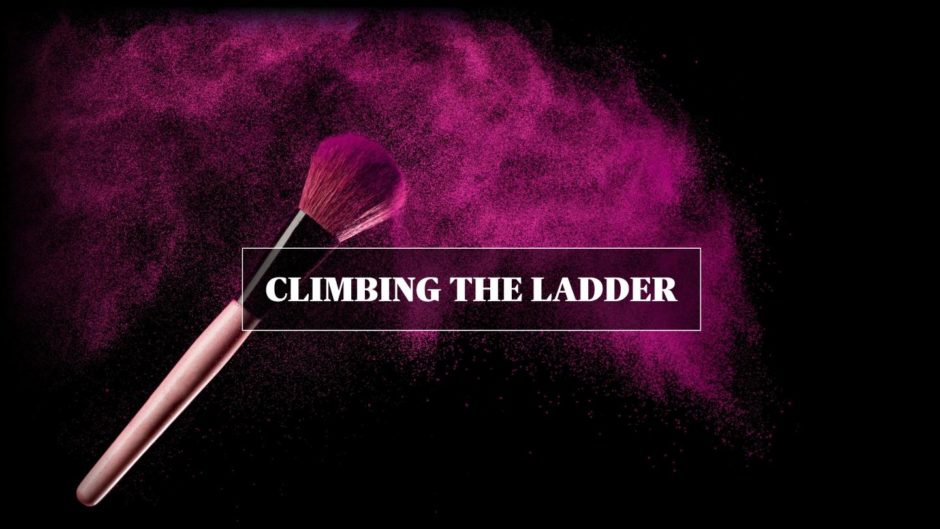
Critics often compare multi-level marketing firms to pyramid schemes, and – at a glance – it can sometimes be difficult to tell the difference.
After all, there are lots of similarities.
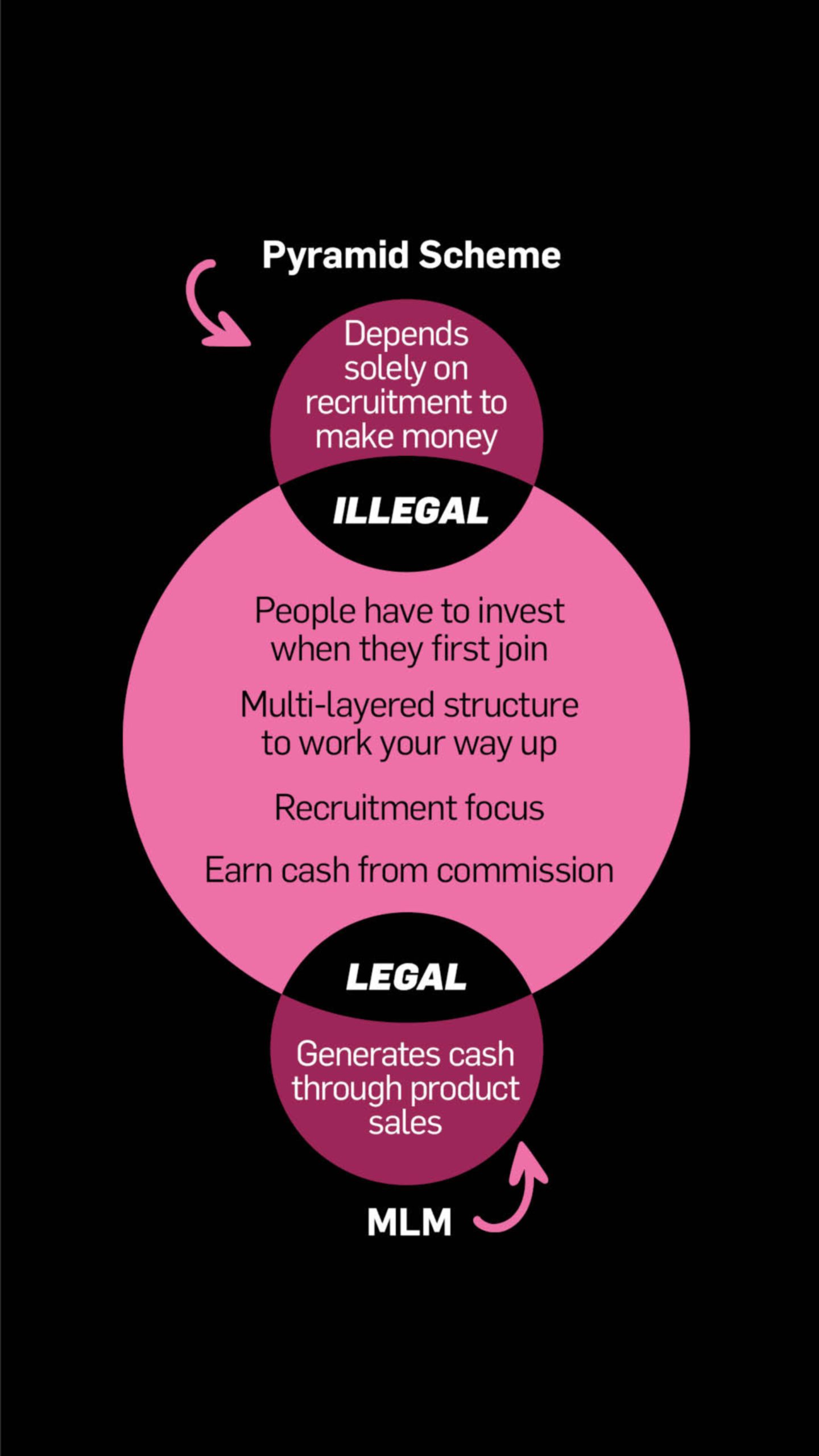
In fact, participating in a pyramid scheme is a criminal offence. Anyone involved in one can be prosecuted.
Multi-level marketing firms are also quick to draw your attention to the “unlimited earning potential” of their business, but it can be much harder to establish what an individual distributor makes each month.
In fact, information on the actual earnings of multi-level marketers is scant.
The DSA says there are now more than 563,000 direct sellers in the UK, 90% of them women, and the industry contributes £2.6 billion to the economy.

Of course these stats don’t show how many reps are working on their MLM business full time.
A DSA representative told us the majority of people involved in direct selling have another form of income despite some MLM recruiters making it seem in their social media messages that they make all their money through MLM sales.
There is no official data showing exactly how many people work “full time” on their direct-sales businesses and how many hours they put in each week.
It’s even more difficult to find transparency about earnings from the multi-level marketing companies themselves.
There is lots of talk about profits and income, but no specific numbers are mentioned.
Even their official income disclosure statements don’t seem to tell the full picture. Take cosmetics firm Arbonne for example, one of the biggest MLM businesses in the UK.
Its income disclosure statement for 2020 shows that the average annual earnings for independent Arbonne consultants is just £97.
What we don’t know is how many hours the individuals worked to earn this money.
We also don’t know how much cash they invested in their business, such as buying stock and paying registration fees, before they could start making sales.
It’s also unclear what happens to the people who don’t earn any money. Are they included in the numbers?
In previous years Arbonne has included all the consultants in their disclosure statement, but this seems to have stopped.
In the 2018 statement, it notes that there are approximately 21,000 Arbonne consultants in the UK but only 12% (2,520 people) made any earnings at all.
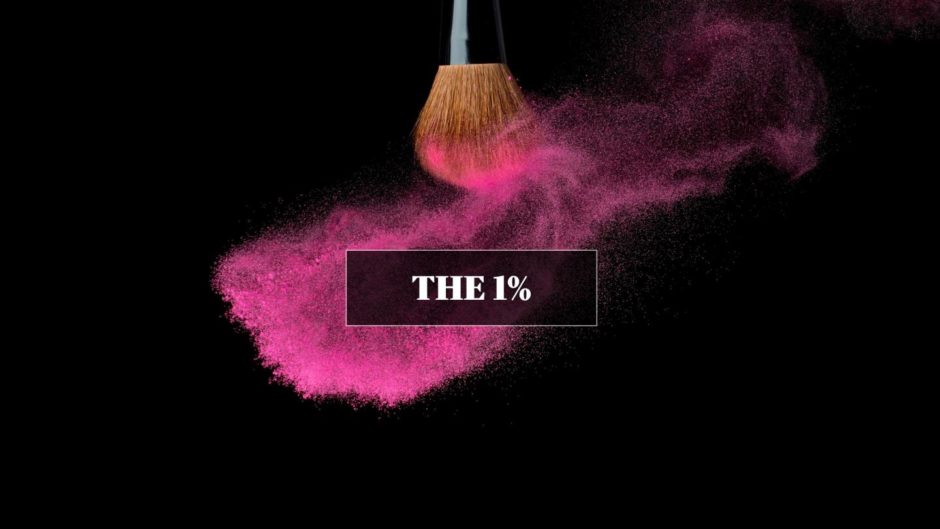
After the initial honeymoon period, many women report feeling trapped by the very multi-level marketing business they worked so hard to succeed in. Danielle, who we heard from earlier, said: “I really do regret ever wasting my time with it.”
The money they thought they could make still hasn’t materialised but instead of throwing in the towel, some recruits vow to work harder and end up in a cycle of endless spending to keep their business afloat.
Douglas Brooks is a US attorney who specialises in representing those who say they are victims of MLM schemes in the States.
Douglas is talking via Zoom from his office in central Boston, Massachusetts, sitting in a leather chair behind a big desk stacked with papers.
When it comes to MLMs, there’s not much he doesn’t know. And after 30 years fighting many well-known MLM firms and high-level distributors, he’s got strong opinions on the tactics many of these businesses use to both recruit and retain employees.
This is followed up by a discussion of the potential recruit’s dreams and fears. Do they want to save for retirement, pay for their kids to have a good life, or are they scared of redundancy?
Suddenly they’re told: ‘You will not become a six or seven-figure earner if you don’t build a team.’”
Abruptly the simple sales business is not so simple anymore. There are targets to hit, meetings to attend, and competition from other local distributors can be fierce.
It can feel overwhelming, so many MLMs sell “mindset training” sessions to their reps. “Working hard is optional but so is success,” is a common mantra Douglas has seen repeated in these training programmes, many of which are played out virtually to subscribers around the world several times a month.
Meanwhile each of the companies maintain that they offer all the tools necessary to build a successful business, whether that’s guidance, training or support.
Yet the experiences of many of the women who got in touch with us tell a different story.
They tell us about a relentless focus on recruitment and positive thinking, meetings focused on high level “success stories”, mysterious terminology, and the tendency for distributors to dedicate more and more of their time and energy to the organisation despite the lack of financial success.
Such behaviours lead critics to describe MLMs as “business cults”.
There’s a lull in the conversation as Douglas shakes his head.
So as controversy grows around MLMs, legal action has also arisen.
In the US, clothing MLM firm LuLaRoe is currently being sued by Washington state attorney general Bob Ferguson, who says that “LuLaRoe tricked consumers into buying into its pyramid scheme with deceptive claims.” In 2017, the Chinese government shut down hundreds of multi-level marketing companies, which it described as “business cults”. Yet in the UK, no authorities are currently investigating them.
A representative for Trading Standards explained MLMs only become an issue for the body if a company breaches consumer protection regulations by, for example, making misleading claims about products. However to date, Trading Standards has not looked into any MLMs on a national level.
While Trading Standards may not have become involved, others have moved against the organisations.
Parenting internet forum Mumsnet decided three years ago to ban MLM advertisement on the site, while TikTok recently become the first major social media platform to ban any MLM selling or recruitment.
Hundreds of ordinary people are also now campaigning against MLMs on social media.
Many local online marketplace sites around Scotland explicitly ban all posts related to MLMs, while national pages like MLM Lies Exposed on Facebook, which currently has nearly 17,000 members, encourages “open discussion” regarding claims made by MLM reps across the country.
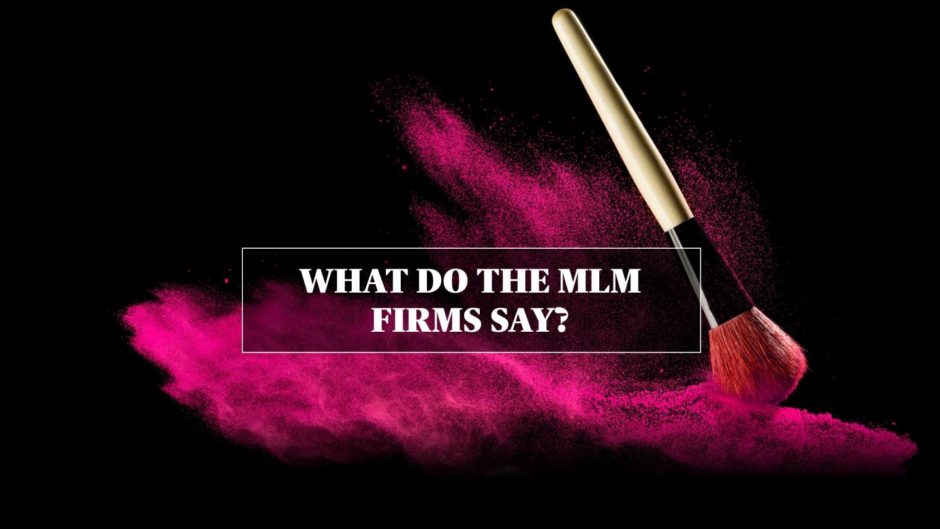
All major UK multi-level marketing firms, including Younique, Arbonne and Forever Living, are members of The Direct Selling Association.
I put the claims in this article to them, including allegations over misleading claims about earnings and recruits feeling pressured into buying stock.
When contacted for comment, Arbonne said: “As a whole, it’s important to note that consultants overwhelmingly report positive experiences with Arbonne. We celebrate consultants’ success at every level, and we work hard to champion a community that is passionate, inclusive, warm and welcoming to all.
“To help uphold these values, consultants are trained on the guidelines, rules and standards set by our business ethics and sustainability team. We have a channel, BEST.arbonne.com, for both consultants and members of the general public to note any violations which are then thoroughly investigated and acted upon as necessary.”
A spokesperson for Forever Living said it does not condone “pressure of any description, misrepresentation of lifestyle, the business opportunity or promises of income levels.
“The company has clearly defined escalation procedures to deal with any such allegation. Breaches of the agreed terms may lead to termination of their agreement.
“Furthermore all Forever business owners are contractually required to abide by the company’s policy to comply fully with the Direct Sales Association (DSA) code of ethics.”
Susannah Schofield OBE, Director General of the UK Direct Selling Association, said: “The overwhelming majority of the 563,000 people working with DSA member companies in the UK have positive experiences and find the additional income that this form of earning can provide extremely valuable.
“I am, however, concerned to hear of people who have not had such positive experiences and would strongly encourage anyone affected to make use of the DSA’s formal complaints procedure.”
She said all DSA members must adhere to the DSA’s codes of conduct, and advises anyone to be wary of outlandish claims offering opportunities which seem too good to be true.
Younique did not respond to multiple requests for comment.
Have you been affected by any of the issues in this report? Contact reporter Philippa Gerrard in confidence now by emailing philippa.gerrard@pressandjournal.co.uk
More from our Impact team

Three women… One stabbed to death. One raped. One took her own life. A special investigation into domestic abuse being suffered by young women in Scotland.
Full series
The Impact team
-
Words by Philippa Gerrard
-
Design by Cheryl Livingstone
-
Graphics by Gemma Day
-
Data visualisation by Lesley-Anne Kelly
